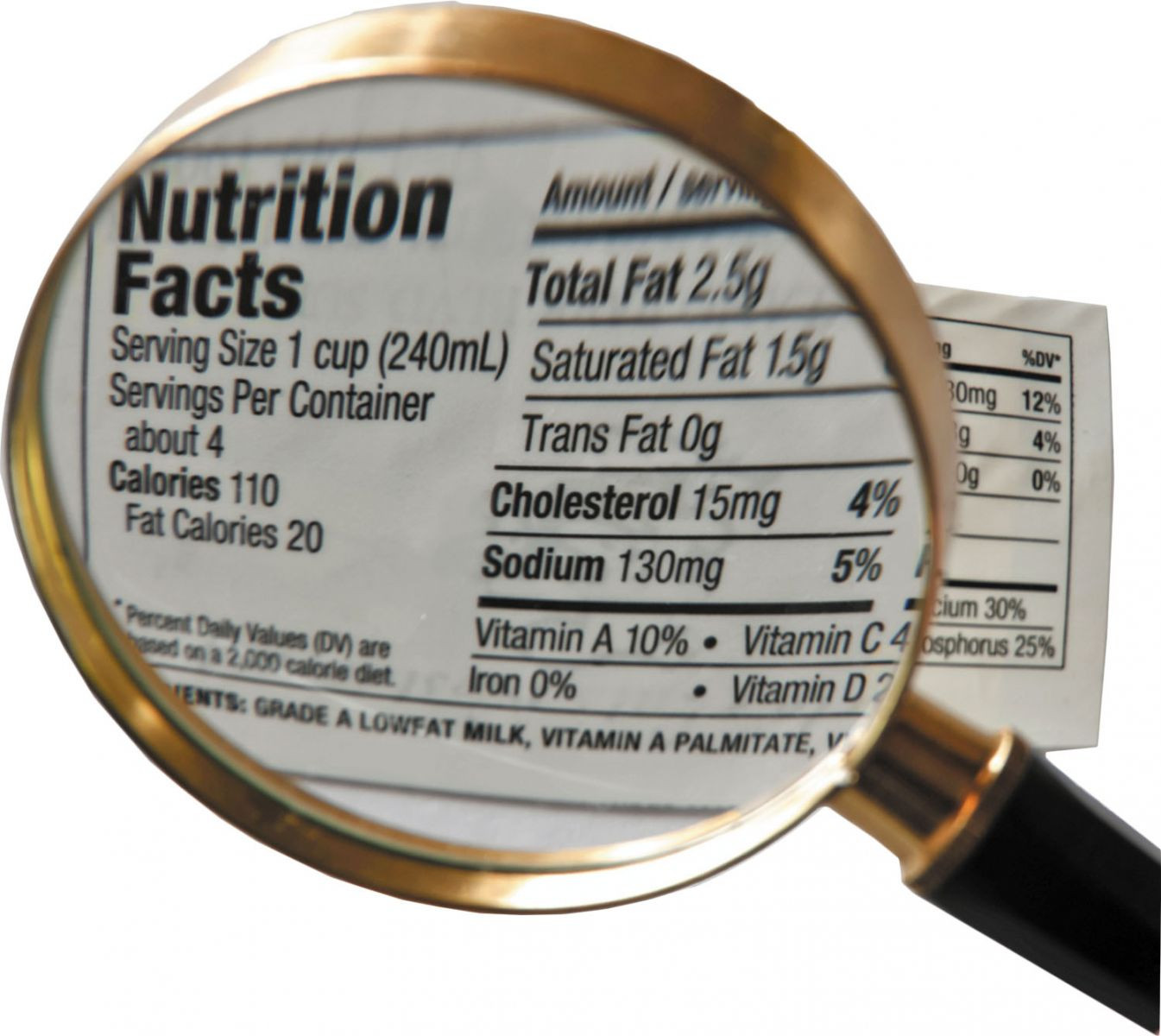
5 timeless habits for better health

What are the symptoms of prostate cancer?

Is your breakfast cereal healthy?

When pain signals an emergency: Symptoms you should never ignore

Does exercise give you energy?

Acupuncture for pain relief: How it works and what to expect

How to avoid jet lag: Tips for staying alert when you travel

Biofeedback therapy: How it works and how it can help relieve pain

Best vitamins and minerals for energy

Should you take probiotics with antibiotics?
Heart Health Archive
Articles
Simple swaps to eat less salt
Learn the most common sources of sodium in your diet and some easy substitutions you can make.
Image: © yosmanor/Getty Images
If you think steering clear of potato chips, pretzels, and other savory snacks is the best way to trim salt from your diet, think again. Yes, those foods are salty — but they only rank no. 7 on the top 10 sources of sodium (a major component of salt) in the average American's diet.
The category of bread and rolls tops the list, which is based both on sodium content and how often people eat the foods. Bread is not especially salty, but we eat a lot of it, as well as similar foods such as hamburger and hot dog buns, bagels, and English muffins.
Narrowed aortic valve with no symptoms
Ask the doctor
Image: © andresr/Getty Images
Q. I was recently diagnosed with aortic stenosis after my doctor heard a slight heart murmur and referred me for an echocardiogram. I don't have any symptoms, so the cardiologist recommended that I get periodic echocardiograms to monitor the condition. Is there anything else I can — or should — do?
A. Aortic stenosis — also called aortic valve stenosis — occurs when the one-way valve inside the heart's largest vessel, the aorta, stiffens and becomes clogged with calcium deposits. As a result, the valve doesn't open as easily. During a heartbeat, as the heart's main pumping chamber (the left ventricle) contracts, pressure builds up behind the aortic valve. This creates the turbulent blood flow that a doctor can hear through a stethoscope.
Getting the most out of your heart medications
These drugs help prevent potentially life-threatening events. Make sure you're taking them correctly.
Image: © SelectStock/Getty Images
Recently, a Heart Letter subscriber emailed us this query: "Does taking your blood pressure medication at night protect the heart more than if you take it in the morning? If so, why?"
Maybe you've wondered the same thing, or have other questions about the drugs you take to prevent or treat heart disease. In addition to blood pressure pills, these include drugs to lower cholesterol and to prevent blood clots.
Radiation from heart imaging: What you need to know
Certain tests involve small amounts of radiation. Here's some perspective on the benefits and risks.
Cardiologists have many options for visualizing the heart, some of which involve exposure to radiation. Used appropriately, these tests can identify possibly life-threatening conditions, such as dangerous heart artery blockages. In recent years, the accuracy of many of these noninvasive tests has increased. They're also being used with increasing frequency.
Because ionizing radiation can damage cells, potentially raising the risk of cancer, experts acknowledge that imaging tests that involve radiation should be used judiciously. Earlier this year, the American College of Cardiology published a consensus statement on the best practices for safe and effective use of radiation in cardiac imaging tests.
Does loneliness play a role in cardiovascular problems?
Staying connected to friends, neighbors, and your community may protect your heart.
Image: © StockPlanets/Getty Images
The lonely hearts club may be larger than you realize. About a third of older adults say they frequently feel lonely, according to findings from the National Social Life, Health, and Aging Project. And only about half of Americans have meaningful in-person social interactions on a daily basis, such as having an extended conversation with a friend or spending time with family members, suggests a recent survey by the global health service company Cigna.
People whose main social contacts were at their place of work often feel that loss acutely after they retire. Many older adults are also at risk for isolation and loneliness because they're divorced or have lost a partner. But a lack of caring companionship (including from family, friends, or a romantic partner) may make you more vulnerable to a number of health woes. In fact, several studies suggest that isolated and lonely people face a slightly higher risk of heart attack or stroke than people with stronger social networks.
Aldosterone overload: An overlooked cause of high blood pressure?
This hormone, which helps the body manage water and sodium, is a focus of growing interest among researchers.
High blood pressure — which has no symptoms or warning signs — can harm your blood vessels, heart, brain, eyes, and kidneys. An estimated 46% of adults in the United States have this stealth condition. A combination of unhealthy habits, such as smoking, a poor diet, and lack of exercise, can contribute to a rise in blood pressure. While kidney disease may cause high blood pressure, for most people the underlying cause is unknown.
However, for about one of every 15 people with high blood pressure, an imbalance of the hormone aldosterone may be to blame. This problem may be even more common among people with poorly controlled high blood pressure (also called resistant hypertension). "Among those people, up to one in five may have too much aldosterone," says Dr. Gail Adler, chief of cardiovascular endocrinology at Harvard-affiliated Brigham and Women's Hospital.
Vegetable of the month: Tomatoes
Image: © Singkham/Getty Images
Vine-ripened, locally grown tomatoes are abundant in farmers' markets in August. Scientifically speaking, these vivid red (and sometimes yellow, brown, purple, or green) orbs are fruits. But the USDA, which issues the Dietary Guidelines for Americans, includes tomatoes in the red-orange vegetable group. Aim for about five to six cups per week of the foods in this group, which also includes carrots, squash, and sweet potatoes.
When good fresh tomatoes aren't available, canned tomatoes are a good substitute, especially in soups, stews, and pasta sauces. Eating tomatoes and tomato products may help lower cholesterol and improve blood vessel function, according to a 2017 article in Atherosclerosis.
Heart-healthy diet linked to bigger brain volume
Research we're watching
Image: © MachineHeadz/Getty Images
The same diet that doctors recommend for dodging heart disease also may help preserve brain tissue, a new study finds.
Researchers scrutinized diet surveys from more than 4,200 people with an average age of 66 and ranked the quality of their diets on a scale of 0 to 14. A score of 14 was healthiest and included lots of fruits and vegetables, whole grains, nuts, dairy, and fish, but limited sugar. The volunteers provided data on other factors that might affect brain size, such as blood pressure, physical activity, and smoking. They also underwent brain scans to measure their brain size.
Duration of atrial fibrillation and risk of stroke
Research we're watching
Episodes of atrial fibrillation (afib) — a chaotic, irregular heart rhythm — can last for minutes, hours, days, or much longer. The condition encourages blood clots to form in the heart; the clots can then escape and lead to a stroke. New research suggests that even intermittent bouts of afib (which were previously considered to be low risk) may increase a person's risk of stroke.
The study included nearly 2,000 people who wore a small skin patch that continuously monitored their heart rates for 14 days. All of them had paroxysmal (intermittent) afib and were not taking anti-clotting medications. Researchers then tracked the participants' incidence of stroke over the following five years. They found that afib that lasted more than 11% of the total monitoring time was associated with a threefold increase in stroke risk.
Exercise: Better starting later than never
Research we're watching
Image: © adamkaz/Getty Images
Exercising regularly throughout life is the best way to keep your heart healthy. But starting to exercise even in late middle age may lessen the risk of heart failure, according to a report in the May 15 issue of Circulation. Heart failure, a gradual decline in the heart's ability to pump enough blood to meet the body's needs, affects about 6.5 million people in the United States.
The study involved more than 11,000 people who were part of a long-running project begun in the late 1980s, the Atherosclerosis Risk in Communities Study. Every six years, participants got medical testing and filled out questionnaires about their physical activity.

5 timeless habits for better health

What are the symptoms of prostate cancer?

Is your breakfast cereal healthy?

When pain signals an emergency: Symptoms you should never ignore

Does exercise give you energy?

Acupuncture for pain relief: How it works and what to expect

How to avoid jet lag: Tips for staying alert when you travel

Biofeedback therapy: How it works and how it can help relieve pain

Best vitamins and minerals for energy

Should you take probiotics with antibiotics?
Free Healthbeat Signup
Get the latest in health news delivered to your inbox!
Sign Up











